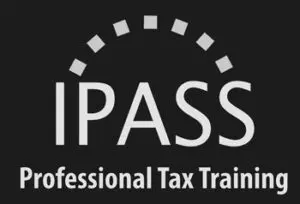Revenue Discusses PAYE Modernisation
PAYE Modernisation
IPASS is in regular contact with Revenue via regular stakeholder updates, workshops for payroll software developers and general correspondence regarding the redesign of the PAYE system which will be effective from 1st January 2019.
What will it involve?
PAYE Modernisation will involve an “Employer Submission” to Revenue each time an employee is paid. The Employer Submission will contain information similar to that which currently appears on an employer’s P35 return.
Will it create additional work for payroll operators?
It is envisaged that the workload for employers using payroll software will not increase as the majority of payroll software products should be capable of communicating electronically with Revenue (e.g. obtaining new tax credit certificates, facilitating Employer Submissions, etc.) without the need to upload or download files as currently happens. P30s, P35s and P45s will be abolished with employers submitting this information to Revenue electronically in the Employer Submission.
As noted previously, the reporting obligations for smaller employers, especially those availing of the direct debit payment option will increase. Currently these employers may be making one submission to Revenue each year (i.e. an annual P35 return), however under PAYE Modernisation, these employers will have to make an Employer Submission for each pay period. Revenue aim to provide an online data capture mechanism to allow employers report payments where payroll software is not in use.
What impact will it have on employees?
P60s will be abolished for employees who instead will have access to their pay and tax record online which will be updated on an on-going basis throughout the year as they are paid. This will enable Revenue to carry out periodic reviews to identify if employees are utilising their tax credits and SRCOP to the maximum effect (e.g. where an employee has 2 employments) and, where applicable, employees will be prompted to reallocate tax credits and SRCOP.
What approach will Revenue take regarding the application of penalties for non-compliance?
While Revenue will take a practical approach when it comes to the application of penalties on the introduction of PAYE Modernisation, non-compliant employers can expect Revenue Intervention.
Who will be responsible for taxing Illness Benefit?
Revenue is reviewing options to deal with the taxation of Illness Benefit which would remove the obligation for an employer to tax it through payroll. The most likely option at the moment is that Revenue will assume responsibility for taxing it via an adjustment being applied to the employee’s tax credit certificate.
What can employers do in preparation for PAYE Modernisation?
Revenue has commenced its awareness campaign for PAYE Modernisation by releasing an information leaflet entitled “PAYE Modernisation – Are You Ready”. The leaflet outlines important steps for new and existing employers in advance of 1st January 2019. Steps that employers (or new employers) should take to ensure that their existing records are up to date and their existing payroll obligations are met, include:
- Register as an employer (for new employers).
- Take reasonable steps to verify the PPSN provided by employees (e.g. check it against a Public Services Card, P45 or other Revenue or DSP correspondence) and where the employee does not hold a PPSN, they should contact the DSP to apply for one.
- Register all employees with Revenue (i.e. P45(3) or P46 where the employee has no P45). Where the new employee has not worked in Ireland before, the employee must register the employment online using the Jobs and Pension service available in myAccount. The Jobs and Pension service can also be used by employees who are changing from one employment to another. Once the employment has been registered, Revenue will issue a tax credit certificate.
- Issue a P45 when an employee ceases employment and submit it to Revenue.
- Ensure that they have received an up-to-date tax credit certificate for each employee. The leaflet outlines the basis of tax which should be applied on the first pay day of a new tax year in the event that an up-to-date tax credit certificate for that year is not received.
- Ensure that they hold a complete PAYE, PRSI and USC record for each employee at the end of the tax year.
What approach will Revenue take regarding the application of penalties for non-compliance?
While Revenue will take a practical approach when it comes to the application of penalties on the introduction of PAYE Modernisation, non-compliant employers can expect Revenue intervention.
Revenue correspondence regarding P2Cs
In preparation for PAYE Modernisation, Revenue contacted approximately 400 employers in June 2017 regarding their P35L returns for 2016 where all employees listed on the return were never previously registered. These returns contained employees who were never previously registered as working with this employer (i.e. the employer never submitted a P45(3) or P46 nor was the employment registered via the Jobs and Pension service). The correspondence reminds those employers about their obligation to comply with the PAYE Regulations and requires them to submit a P46 immediately for each employee concerned with a commencement date of 1st January 2017 which will result in a new tax credit certificate (P2C) being issued for these employees. A copy of the letter is available here.
Further to the letters issued in June 2017, Revenue issued another batch of letters to employers over a 5 week period commencing in late September 2017 where an employer’s P35 Return for 2016 contained some employees who were never previously registered as working for that employer. A copy of this letter is available here. Again, employers are reminded to submit a P46 to register these employments. If the employment commenced prior to 2017, the start date on the P46 should be entered as 1st January 2017.

